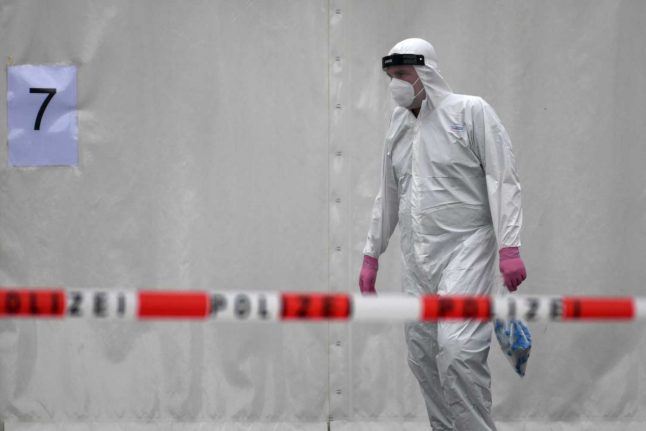The Robert Koch Institute for public health said Germany's closely watched reproduction rate (R0) had climbed to 1.1, meaning 10 people with COVID-19 infect on average 11 others.
The RKI has warned that for the infection rate to be deemed under control and slowing down, R0 has to stay below one.
As recently as Wednesday, Germany's number stood at 0.65. But since then the country has reported clusters of new cases at slaughterhouses and at care homes for the elderly.
The RKI cautioned that it was too soon to draw conclusions but said the number of new infections “would need to be watched very closely in the coming days”.
The latest data raised alarm after Merkel only on Wednesday declared that Germany had left the “first phase” of the pandemic behind it and federal states announced relaxations of social restrictions.
Most shops and playgrounds have reopened, children are gradually returning to classrooms and states are to varying degrees reopening restaurants, gyms and places of worship.
German local authorities have however agreed to pull an “emergency brake” and reimpose social curbs if the infection rate rises above 50 cases per 100,000 residents over a week.
That has already happened in at least three districts in recent days, according to the RKI.
Football, slaughterhouses
In Germany's most populous state of North Rhine-Westphalia, there has been a spike in cases at a slaughterhouse in the district of Coesfeld, where around 200 of the 1,200 employees have tested positive for the virus.
Many of them are foreign workers from eastern Europe who lived in shared housing.
The regional government has ordered workers at all of the state's slaughterhouses to undergo testing.
It has also delayed the loosening of some confinement measures in the district.
An outbreak of COVID-19 at a slaughterhouse in the northern state of Schleswig-Holstein has likewise pushed the district of Steinburg over the infection threshold.
In the eastern state of Thuringia, Greiz district has reported a jump in infections among residents and employees of several care homes and a geriatrics hospital.
There were also fresh fears for the planned restart of the Bundesliga football season on May 16 after second-tier Dynamo Dresden were ordered to go into quarantine over two coronavirus cases.
Protests
Despite the rising concerns, some Germans believe the country is not moving fast enough in easing the confinement measures.
Thousand of people took to streets in cities nationwide at the weekend to protest against the remaining restrictions, such as wearing a mask on public transport and limiting social contacts.
Tensions rose at a rally in Berlin on Saturday, where hundreds of protesters chanted “Freedom, Freedom” and some threw bottles at police. Several dozen people were taken into custody.
In Munich, where some 3,000 protesters gathered on Saturday, police criticised participants for not sticking to social distancing rules.
The demos, which have grown larger in recent weeks, have mostly attracted a mix of far-right and far-left sympathisers.
But they are increasingly becoming more mainstream.
A well-known politician from the liberal Free Democrats party (FDP), Thomas Kemmerich, came under fire for joining a protest in Thuringia state that was also attended by members of the far-right AfD party.



 Please whitelist us to continue reading.
Please whitelist us to continue reading.
Member comments